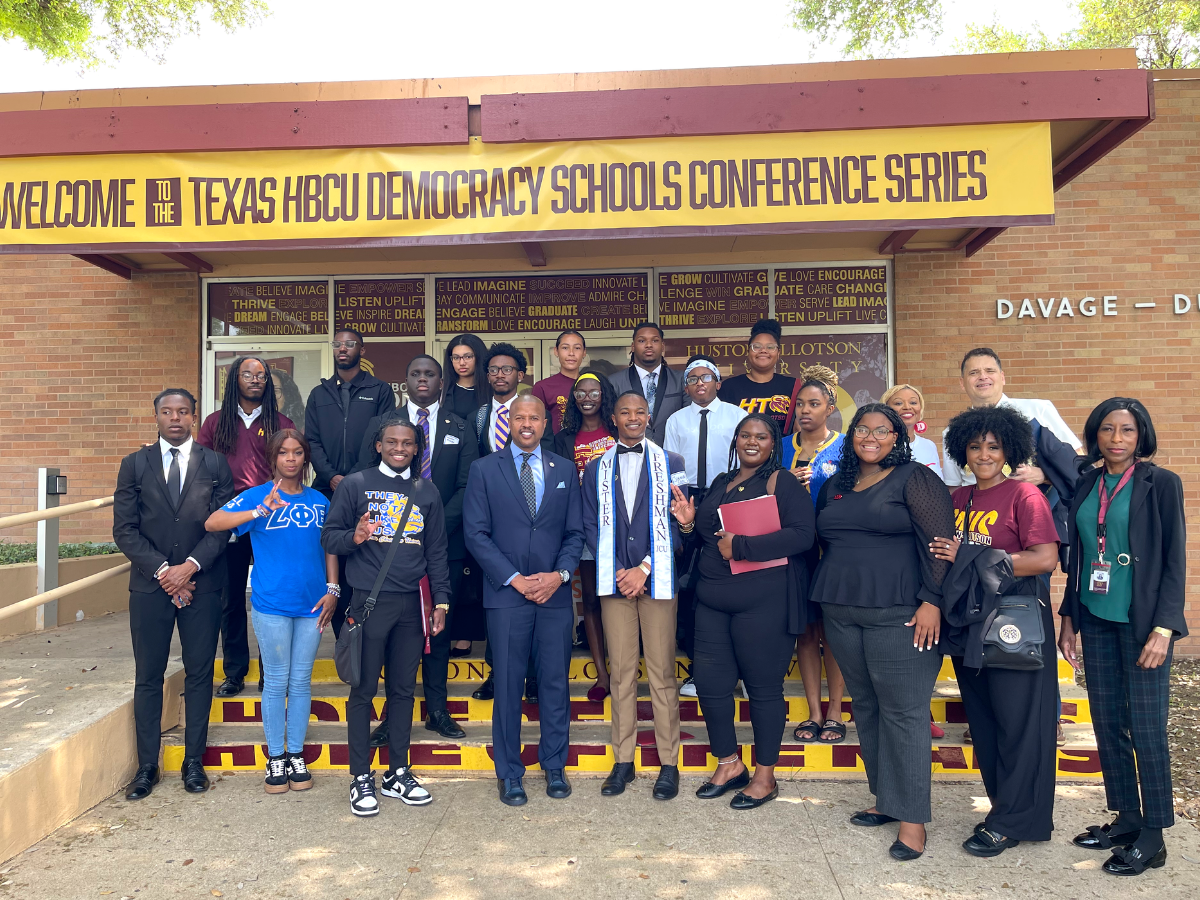By Tannistha Sinha
In a history-making move, students from Texas’s nine Historically Black Colleges and Universities (HBCUs) formed the state’s first HBCU Legislative Caucus, taking an active role in the 89th legislative session.
The nine institutions include Huston-Tillotson University in Austin, Jarvis Christian College in Hawkins, Paul Quinn College in Dallas, Prairie View A&M University in Prairie View, Southwestern Christian College in Terrell, St. Philip’s College in San Antonio, Texas College in Tyler, Texas Southern University in Houston and Wiley College in Marshall.
Led by State Rep. Ron Reynolds (D-Missouri City), Texas students launched the state’s first HBCU Legislative Caucus, which they call a “bipartisan coalition” dedicated to advancing the nine HBCUs.
Reynolds said the caucus will help students land internships and experience at the Texas Capitol. It also aims to combat Trump’s Executive Order 14151 he signed on Jan. 20, 2025, titled “Ending Radical And Wasteful Government DEI Programs And Preferencing.”
The Caucus’ website states, “The formation comes at a critical moment as the Department of Education shutdown threatens institutions already receiving disproportionately less funding, resources and support. These challenges directly impact Texas HBCUs, which generate an estimated $1.5 billion in economic impact annually while achieving remarkable graduate retention rates exceeding 70%.”
One of the Caucus’s first actions was writing House Bill 3296, which establishes an education consortium to explain how the government and voting systems work for Texans and addresses funding and graduation rates in HBCUs.
Reynolds filed the bill on behalf of the students. He said it was the first time such a bill had been introduced in the House that would address historic disparities in HBCU funding as compared to primarily white institutions, opening doors to new funding sources.
“History books will remember this moment,” Reynolds said to the students. “History books would talk about these students that were part of the inaugural HBCU Legislative Caucus, the ‘good trouble’ that everyone in this room made to make our society better history.”
While equitable funding for historically Black colleges and universities aims to close longstanding gaps in higher education, some lawmakers and advocates say strengthening civic education is just as critical to learning about government structures.
According to the Annenberg Public Policy Center’s annual Constitution Day Civics Survey, fewer than half in a new survey could name all three branches of government. A 2018 Johns Hopkins survey also found that a third of Americans could not name their governor and that 80% could not name their state legislator, among other information about state government.
The bill will allow Texas citizens access to civic education, also known as citizen or democracy education. Civic education empowers citizens to participate in democratic processes by providing information, promoting engagement and fostering a demand for good governance.
Students, accompanied by faculty and local leaders, also marched from Huston-Tillotson University to the Texas Capitol to garner lawmakers’ support for the bill. They chanted, “Civic strong HBCU Texas” and “History moves when we move,” while marching down the streets of Austin.
“We have a vast majority of the HBCUs in Texas that are here and supporting our efforts,” said Tytiana McWhorter, a student of the Thurgood Marshall School of Law at Texas Southern University and legislative aide for Reynolds.
“The march brings all the HBCUs together and makes a public expression of showing our unity and our power,” she said. “We want to make sure that the house members are aware of the bill and that we have their support in advance.”
Key Provisions of House Bill 3296
The bill goes into effect in the 2025-26 academic year if passed.
Only accredited HBCUs in Texas are eligible. The funds will be used for faculty and staff recruitment, digital resources, research and curriculum upgrades, infrastructure improvements and hosting civic education events that include voter registration drives.
HBCUs will also collaborate with local entities such as municipalities, counties, community organizations, public libraries and institutions of higher education to provide civic education. A joint committee of these representatives will monitor and evaluate the program’s implementation and impact on a triennial basis.
A Long Road Ahead
Freeman Crawford IV, a third-year student at Huston-Tillotson University, said, “This is a bill that our brothers and sisters at HBCUs wrote for us and for y’all.”
He added that the bill has to pass through several steps before becoming law.
The bill will go to the 11-member House Committee on Higher Education, chaired by Rep. Terry Wilson, a Republican, and must secure seven members’ votes to proceed to the House floor. From the House’s 88 Republican and 62 Democratic members, it needs a majority of the representatives to vote “yes” before it heads to the Senate. If the Senate passes the bill, then Gov. Greg Abbot gets to sign it into law.
Attending the march, Austin City Council District 1 Councilmember Natasha Harper-Madison said the bill, if passed, will allow Texans from myriad backgrounds to access civic education.
“We the people have the responsibility to bridge the gap by creating a statewide partnership between Historically Black Colleges and Universities and municipalities,” Harper-Madison said. “This [bill] could build a robust infrastructure and civic inclusion.”

